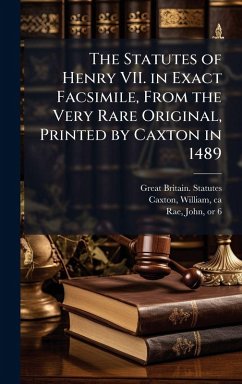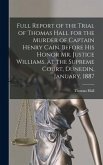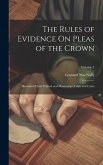This volume presents "The Statutes of Henry VII. in Exact Facsimile, From the Very Rare Original, Printed by Caxton in 1489." This meticulously reproduced facsimile offers a unique glimpse into the legal and printing practices of late 15th-century England. William Caxton, a pioneer of English printing, originally produced the statutes, and this edition provides scholars and historians with an accessible version of a foundational legal text. The volume preserves the original's typography and layout, offering insights into the early days of English law and book production. The Statutes of Henry VII are crucial for understanding the legal landscape of the time and the evolution of English common law. This facsimile edition ensures the preservation of a significant historical document for future generations. This work has been selected by scholars as being culturally important, and is part of the knowledge base of civilization as we know it. This work was reproduced from the original artifact, and remains as true to the original work as possible. Therefore, you will see the original copyright references, library stamps (as most of these works have been housed in our most important libraries around the world), and other notations in the work. This work is in the public domain in the United States of America, and possibly other nations. Within the United States, you may freely copy and distribute this work, as no entity (individual or corporate) has a copyright on the body of the work. As a reproduction of a historical artifact, this work may contain missing or blurred pages, poor pictures, errant marks, etc. Scholars believe, and we concur, that this work is important enough to be preserved, reproduced, and made generally available to the public. We appreciate your support of the preservation process, and thank you for being an important part of keeping this knowledge alive and relevant.
Bitte wählen Sie Ihr Anliegen aus.
Rechnungen
Retourenschein anfordern
Bestellstatus
Storno








